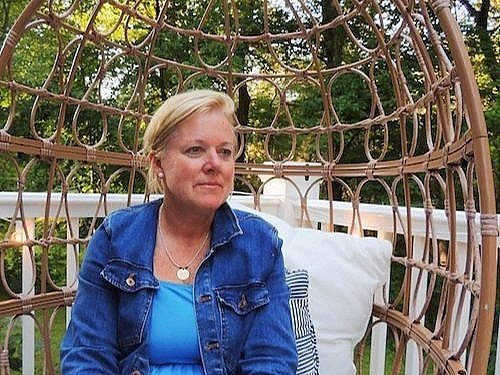By Adelyn Krucoff, Summer 2023 Collaborator at Power in Place
When you think of an empress of Rome, typically you don’t think of one who raised a cult, who maneuvered politically just like her husband, who was a competent advisor, and may or may not have poisoned several people. She was responsible for reigning in the slowly ever growing insanity of Tiberius, outlived Augustus, her second husband, by a good 15 years, and she held together the Julio Claudian dynasty by her fingertips. She was wise in a way few are, modest in a way very few with power are, and cunning in a way almost no one else ever has been. She was just utterly divine, which is probably why she was the driving force behind the cult of the newly Divine Augustus.
Livia Drusilla was 16 years old in 43 BCE. She was modest, kind, young, and for a time married to someone lacking political intelligence. Tiberius Claudius Nero was her first husband, she was married off to him when he was aged 39 [1], but even in her youth, she was far smarter than him. Livia was young, but she was fiercely intelligent in Roman political spheres, she was a confident advisor, but was unfortunately being dragged around the entire Roman world by her husband's moronic decisions. First he supported Mark Antony in the battles of the 2nd Triumvirate and fled Rome to be with Antony’s brother in the city Perusia, a city currently under siege [2]. Then shockingly the city fell, meaning that both Nero and Livia had to flee twice more. During this, Nero got the brilliant idea to raise a slave army against Augustus [3]. While all this was happening the second Roman Emperor Tiberius was born, meaning Livia had to hop around the Roman world from ages 16 to 19 immediately after giving birth to a child [4]. Then they fled Italy to Sicily to be with Sextus Pompey, the pirate king who had declared open war on the Mediterranean to the entire Roman State, who would then lose as well to Augustus. It was only after 3 successive defeats and a bout of almost being hit by a bolt of lightning and a forest fire [5], that the couple would return to Rome and Italy after an amnesty was passed for all the politicians that had been caught on the wrong sides of the many many wars. This meant that Livia, who was pregnant again and had a young child, could finally return to Rome for a time to relax. Except, of course, she then went to a party while pregnant and Augustus was there and he instantly fell in love with her, upon first sight. This isn't technically true however, Augustus had to talk to Livia first, and then she absolutely wowed him with her intelligence about Roman politics, her humor and wit, and cunning nature. To say Augustus fell head over heels in love with Livia is an understatement. The problem of course was that both of them were currently married, and not only that both the wife of Augustus and Livia were extremely pregnant [6]. But since Rome was so politically volatile and Augustus’s marriage was political, Augustus didn’t actually care about his pregnant wife anymore. So they divorced the same day she gave birth to his only child, Julia. Livia then gave birth to Nero Claudius Drusus, and then 3 days later Livia and Augustus were married. Livia was handed away by her now ex-husband according to Cassius Dio “"just as a father would.”[7]. It was Augustus’s 3rd marriage at the age of 24, it was Livia’s second at the age of 20. The Romans were different I suppose. But this marriage was a major deviation from the Roman norm, it was for love. As far as one can tell, the 2 were genuinely in love, Augustus, like Caesar, had a few marriages before but the second time was the charm for Livia. The 2 would remain married for 51 years.
How to wield soft power
It is important to know that Augustus Caesar was never once called Emperor. He was the first Emperor of Rome, Livia his Empress but neither were ever actually called that. The title of Emperor is a modern translation, it is adopted from the word “Imperator” [8] which means “to hold and wield command imperium” in the Roman state. After the suicide of Mark Antony, Gaius Julius Caesar or as modern historians call Octavion (Augustus) would be granted the title of Augustus by the Roman senate in 27 BCE the official, unofficial start of his reign [9]. Augustus would be given a litany of titles, but most importantly he was Princeps Civitatis meaning first citizen. He was also given the title of Imperator Caesar Divi Filius, "Commander Caesar son of the deified one" this is because he had his adopted father Julius Caesar declared a god by the Roman Senate [10], so he was the son of a god. This would eventually become the title used by Emperors. It would supplant Princeps in 69 CE when the Vespasian codified it into a version of a supreme Imperator, someone who wields supreme power in the Roman state, above everyone else. But of course, as time is linear, that had not happened yet. This meant that Augustus, though he had his titles and was son of a god, did not have the official power of an Emperor. And back to the whole point of this, it meant that Livia held no positions whatsoever. Meaning that Augustus did not have an official mandate or position atop the Roman state, so he had to pretend that there was still a functioning Republic. So in order to wield the power he now had he had to hide it, with advisors, with friends, with personal provinces that were unruly and just so happened to be the richest provinces, and with his wife. Livia was perhaps Augustus closest advisor, she would have been key in solving political issues between powerful families that she had been studying all her life. She would be consulted on just about every action Augustus made, she was put in charge of mines in Gaul [11]. She had her own court, her own advisors and patrons just like an Emperor would, she was extremely effective in pushing allies into political positions. She was able to incur such a good amount of political will from not only Augustus but the entire unofficial imperial administration because she showed not only fierce intelligence but loyalty, beyond the norm. Cassius Dio writes "When someone asked her how and by what course of action she had obtained such a commanding influence over Augustus, she answered that it was by being scrupulously chaste herself, doing gladly whatever pleased him, not meddling with any of his affairs, and, in particular, by pretending neither to hear of nor to notice the favorites that were the objects of his passion".[12] She feigned ignorance for her husbands womanizing, she allowed Augustus to seek sexual pleasures wherever he pleased because in part that was just expected of Women of the time. This however surely bought a great deal of goodwill for her from Augustus, the fact that she was never able to give him a child was ignored, in a time when wives were discarded frequently. She was married for 51 years to Augustus. It also helped that Augustus constantly got very very sick, and you really can’t divorce your wife if you're dying or about to die, and he was basically always dying his entire life [13]. There was also of course the fact that she may not have actually cared, the Romans swung like to an insane degree, she could have had an affair with a vestal virgin or two, there would be no real way to tell. But all good things must come to an end, and on August 19th, 14 CE Augustus would pass away, leaving Livia’s son Tiberius to take up his mantle.
Try as you may, raising a husband is easier than raising a son.
Livia had two sons, Tiberius and Nero Claudius Drusus. Raising them was difficult to say the least. First off, Nero would die rather young, at 29. He was father of both Emperor Cladius, and Germanicus, both extremely under-appreciated Romans, but the death of her youngest son would deeply wound Livia for the rest of her life. She spoke of him often, erected statues, and named many things after him whenever she could. The main problem was her first son however, Tiberius. Tiberius was supposed to be raised by his father, also named Tiberius Claudius Nero, but he had passed away when he was 9, meaning that both children would return to Livia and Augustus. They were raised by Livia well enough that Augustus encouraged their politics, having Tiberius be questor at the age of 17 [14]. The problem was that Tiberius was not raised as Augustus’s heir. In fact at several different times there were 5 other Heirs of Augustus [15]. So there was always some resentment in the household that one, Augustus didn’t consider Tiberius and his brother to be his Heir and two, that Livia may or may not have been killing people to get her son back as Heir. Of course there is no real direct evidence of this. most ancient sources do not hesitate to point fingers at her however [16], but the child and young adult mortality rate in Rome was so astronomically high for the entire history of Rome it’s not impossible to think all these potential Heirs got unlucky. I have rejected this thinking before however with Olympias so my argument is rather simple, if Livia really wanted to have her son as Heir, she probably could have just asked, and Augustus being head over heels in love with her, probably accepts. This however points to a much more damaging understanding, that Livia did not want her son to succeed Augustus. She more likely wanted his power to expire, or to defer to her, and she would wield great power after Augustus died. But what is good for the mother, is often not for the son, Tiberius would at several times lash out at his mother, and their relationship never really recovered after the issue of succession was pushed to the forefront.
The Cult of Augustus
Upon the death of her husband Livia Drusilla was officially adopted into the Julian family and thus was renamed Julia Augusta [17]. This was a last gift from Augustus to her, along with the third of his estate of course, the other ⅔ going to Tiberius. It was the transferring of the mantle Augustus, and as he was deified upon his death, Julia was now the wife and widow of a god. She would now be free to defend her husband's legacy, and to wield power, the only restriction of course was her now son, the Emperor Tiberius. So in other words, she was given permission to basically do whatever she wanted. But oftentimes people with power do boring things, Julia mostly did boring stuff like making sure the Empire ran well, helping Tiberius in his early years and keeping the Imperial administration running [18]. In the Roman East however, especially Egypt she got to do some cool stuff. Egypt had been the personal property of Augustus [19] in his life, technically no Roman Senator was allowed to go there without his permission. This meant that by all measures and fact, the Roman state in Egypt was basically just Augustus, and Livia. This meant that some Egyptians changed the months to names of Augustus’s family, including Liva [20]. While in the Roman West and the facade of Republic she was denied such godlike status, but the Roman East being much weirder than the West compared Liva to the goddess Juno, in Athens she shared honors with Hestia the goddess of the hearth. And with the death of her husband, she was now the only link to someone who had been Deified as a god, she was literally married to a god. She wasn’t the main focus of such worship in the East, or admiration in the West, but she still wielded immense power in that she was the last link to Augustus. Her loyalty would prove a worthwhile investment, she would outlive her Husband by 15 years, more than making up for his womanizing. But sometimes marrying a god isn’t enough.
Scorned by Tiberius
Much of the Early success of Tiberius can be attributed solely to that Livia, now Julia, ran basically half the imperial administration for him. Tiberius did not really want to be Emperor, but also was generally flip flopping on such a thing regularly. He said he took the title reluctantly, but also then took all of Augustus’s titles, even vetoing titles that were supposed to go to Livia. In order to stay in Imperial succession Tiberius was forced to divorce his first wife Vipsania Agrippina and marry Augustus’s only daughter Julia the Elder. He absolutely hated that he had to, unlike Augustus, marry for politics not love. He was forced basically into his first marriage and then fell in love with Vipsania until Augustus made him get divorced [21]. Tiberius in part blamed Livia. Now how much he blamed Livia is unclear, how much it affected him actually is also unclear, but earlier in Tiberius’s reign in 22 CE he rushed to his mothers bedside when she was ill. 7 years later, when she was ill again he did not, and Livia passed away. Other issues popped up as well, Tiberius might have resented the fact that his mom got the Throne for him, he rejected honors laid upon her, even rejecting her will after her death. Their relationship was strained by power, and by unfortunate events, monarchy is tricky business. I encourage you to look at the family trees left by Augustus and Tiberius, you will see that they were plucked clean by untimely deaths, and even more untimely murders. The simple reality is that they were never given a chance, all the island hopping that Livia had to embark with him, the death of his father at age 9, Augustus’s poor health that led to many conflicts with succession, and that Livia was so good at her job she didn’t really have time to raise her children. Upon Livia’s death Tiberius would retreat even further from Rome, a reign of terror that may not have happened then came upon the elite and political classes [22]. Tiberius had enlisted Sejanus to replace his mother, he was much less competent however and had to be purged with fire a few years later. Livia was the imperial administration in the 15 years of her life after Augustus’s death, she was more than an Empress, she was the Empire itself. Her divinity should be remembered alongside Augustus, her failures understood, and her legacy? It speaks for itself.
References
[1] Mingren, Wu “Livia Drusilla: Imperial Wife of Rome and Emperor Maker” https://www.ancient-origins.net/, 05/25/2021 https://www.ancient-origins.net/history-famous-people/livia-drusilla-0015365
[2] Tiberius, Britannica, https://www.britannica.com/biography/Tiberius
[3] "Tacitus on the Transition from Augustus to Tiberius" https://facultystaff.richmond.edu/~wstevens/history331texts/augtotib.html
[4] Huntsman D., Eric "LIVIA BEFORE OCTAVIAN", jstor.org/, 2009, https://www.jstor.org/stable/44079922
[5] Historia Civilis, “Sextus Pompeius and the Sicilian War (42 to 36 B.C.E.)” 01/16/2021, https://youtu.be/8rt67AqrR74?t=1149
[6] Strunk, E. Thomas, "Rape and Revolution : Livia and Augustus in Tacitus' "Annales"
[7] Cassius, Dio page 315 https://penelope.uchicago.edu/Thayer/e/roman/texts/cassius_dio/48*.html
[8] “imperator” Webster's dictionary, https://www.merriam-webster.com/dictionary/imperator
[9] Aldrete, Gregory Ph.D, "Unpacking the Titles of Augustus: Wordplay and Double Meanings", wondriumdaily.com, 10/21/2019, https://www.wondriumdaily.com/unpacking-the-titles-of-augustus-wordplay-and-double-meanings/
[10] Watkins, Thayer "A Timeline of the Life of Julius Caesar", https://www.sjsu.edu/faculty/watkins/caesarjulius.htm,
[11] Davies, Oliver “Roman Mines in Europe”, https://www.cambridge.org/, 1935, https://www.cambridge.org/core/journals/journal-of-roman-studies/article/abs/oliver-davies-roman-mines-in-europe-oxford-the-clarendon-press-1935-pp-291-xii-with-49-text-illustrations-and-10-maps-30s/CC113F51DD0BDD9574A4F89DD04AACFD
[12] Cassius, Dio “Roman History, 58.2” https://lexundria.com/, https://lexundria.com/dio/58.2/cy
[13] “Augustus' Health from Suetonius” unrv.com/, 01/30/2011, https://www.unrv.com/forum/topic/12020-augustus-health-from-suetonius/
[14] Gill, N.S, "Biography of Tiberius, 1st Century Roman Emperor" thoughtco.com, 07/09/2019, https://www.thoughtco.com/tiberius-roman-emperor-121262
[15] "Tiberius: the man who didn't want to be emperor", historyskills.com, https://www.historyskills.com/classroom/ancient-history/anc-tiberius-reading/
[16] Button, Meagan, "Livia Drusilla: Deciphering Between Traditional Views of Rome’s First Lady" Western Oregon University, 06/06/2009, https://wou.edu/history/files/2015/08/Megan-Poole-HST-499.pdf
[17] "Livia Drusilla ( Julia Augusta)", timetoast.com, https://www.timetoast.com/timelines/livia-drusilla-julia-augusta
[18] Barrett A. Athony, "Livia: First Lady of Imperial Rome, Chapter 8 mother of the emperor", Yale university press, 2002, https://www.jstor.org/stable/j.ctt1nq0jw.15
[19]-[20] Dundas S, Gregory, "Augustus and the Kingship of Egypt", jstor.org, 2002, https://www.jstor.org/stable/4436668
[21] Cassar, Claudine "The Life and Times of Emperor Tiberius: A Comprehensive Overview" anthropologyreview.org, 03/23/2023, https://anthropologyreview.org/anthropology-archaeology-news/emperor-tiberius/#Personal_Life_and_Relationships
[22] Leveritt, Will "On this day in AD 31 the Praetorian Prefect Sejanus was executed.", blogs.nottingham.ac.uk/, 10/18/2016, University of Nottingham, https://blogs.nottingham.ac.uk/mintimperials/2016/10/18/day-ad-31-praetorian-prefect-sejanus-executed/















